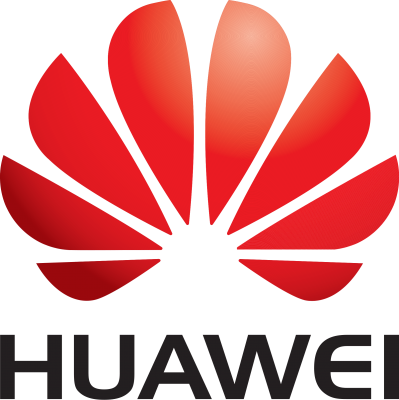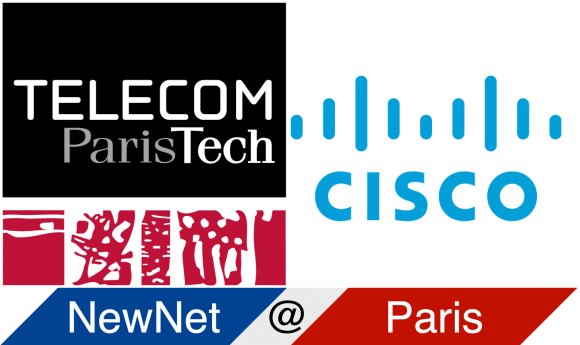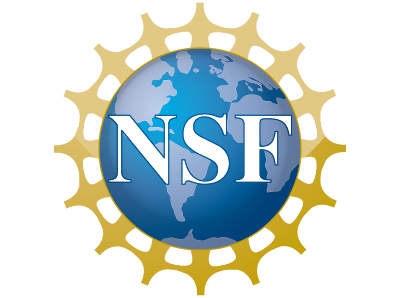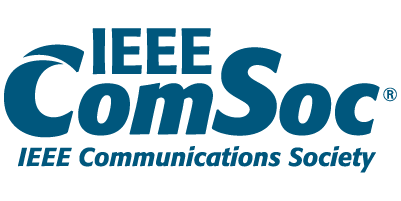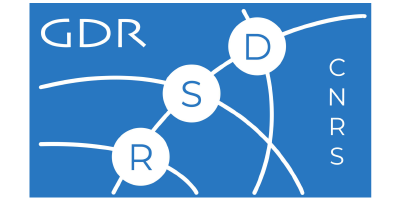The 3rd International Workshop on Integrating Edge Computing, Caching, and
Offloading in Next Generation Networks (IECCO 2019)
Monday, 29 April, 2019● 8:00– 18:30 ● Room: Forum G+H
Cloud computing has been widely adopted to enable convenient access to a shared pool of computing resources. Nevertheless, as the distance between the cloud and the edge device is usually large, cloud computing services may not provide guarantees to low latency applications, and transmitting a large amount of data (e.g., in big data analytics) from the device to the cloud may not be feasible or economical. To address these issues, edge (fog) computing has been proposed to deploy computing resources closer to end users. Edge computing allows edge devices to perform computation offloading to offload their computational tasks to the edge server, which executes the computational tasks on behalf of the edge devices. Another new technology called information-centric networking (ICN) has been extensively studied in recent years. In-network caching is used in ICN to reduce the duplicate content transmission in networks. ICN-based caching has been recognized as one of the promising techniques for future wireless/wired networks.
Recently, there is a phenomenal burst of research activities in integrating edge computing, caching, and offloading in next generation networks. From the perspective of applications (e.g., video), network, cache and compute are underlying resources enabling these applications. How to manage, control and optimize these resources can have significant impacts on the performance of applications.
The Workshop on "Integrating Edge Computing, Caching, and Offloading in Next Generation Networks" provides a forum that brings together industry and academia, engineers and researchers to discuss up-to-date developments in integrating edge computing, caching, and offloading in next generation networks.
Chair:
Victor C. M. Leung (University of British Columbia, Canada)
Technical Program Committee (TPC) Co-Chairs:
Xi Zhang (Texas A&M University, USA)
F. Richard Yu (Carleton University, Canada)
Jiangchuan Liu (Simon Fraser University, Canada)
Xiaofei Wang (Tianjin University, China)
Haijun Zhang (University of Science and Technology Beijing, China)
8:30 – 10:00
Session 1: Mobile Edge Computing
Dynamic Radio Resource and Task Allocation for Wireless Powered Mobile Edge Computing System
Yongchao Zhang and Xin Chen (Beijing Information Science & Technology University, P.R. China); Ning Zhang (Texas A&M University at Corpus Christi, USA); Ying Chen (Beijing Information Science & Technology University, P.R. China); Zhuo Li (Beijing Information Science and Technology University, P.R. China)
Optimal Control Design for Connected Cruise Control With Edge Computing, Caching, and Control
Zhuwei Wang, Yu Gao, Chao Fang, Yang Sun and Pengbo Si (Beijing University of Technology, P.R. China)
Scalable Poisoning Against Regression-Type Edge Computing Applications via An Approximate Optimization Strategy
Xiao Liu, Wentao Zhao, Pan Li, Shaoping Jiao and Qiang Liu (National University of Defense Technology, P.R. China)
Upper-Bounded Price of Anarchy in D2D Communications Over 5G Edge-Computing Mobile Wireless Networks
Xiaohua Xu and Benjamin Lee (Kennesaw State University, USA); Yuanfang Chen (School of Software, Dalian University of Technology, P.R. China); Xi Zhang (Texas A&M University, USA)
Pitch DBN Based Audio Search with Fog Computing Architecture
Wei Chen (China University of Mining and Technology, P.R. China); Deyu Wang (College of Computer Science and Technology, CUMT, Xuzhou, Jiangsu, P.R. China); Fei Li (School of Computer Science and Technology, CUMT, Xuzhou, P.R. China)
VESPER: A Real-time Processing Framework for Vehicle Perception Augmentation
Kwame Wright, Pranav K Sakulkar and Bhaskar Krishnamachari (University of Southern California, USA); Fan Bai (General Motors, USA)
10:00 – 10:30
Coffee Break
10:30 – 12:00
Keynote Session
Professor Zhi-Li Zhang, IEEE Fellow (University of Minnesota, USA)
From Content-Centric Internet to Internet of Things: Some Thoughts on Future IoT Architecture Design
Abstract: Recent years have witnessed the proliferation of various mobile and sensor devices, from mobile phones to smart home devices. These mobile and sensor technologies -- together with a whole gamut of emerging applications they enable -- usher a new era of Internet of Things (IoT) services that will revolutionize the way how we live E and interact with each other and the physical world. For example, various kinds of (physical or virtual) sensors in the physical and/or cyber worlds have not only allowed us to collect a whole gamut of (spatial-temporal) data, but also afforded us the opportunity to apply advanced data analytics, machine learning algorithms to extract actionable knowledge (or AI), make intelligent decisions in response to events, take actions and effect changes in the physical world, e.g., via remotely controlling and issuing commands to smart (mobile or embedded) devices (i.e., actuators) -- namely, the so-called "Tactile" Internet.
Emerging IoT applications and services are putting a strain on today's network architecture, which has primarily served as a giant information repository and distribution platform. The challenges posed by emerging IoT applications and services call for re-thinking and re-architecting of existing networking, compute and storage infrastructures. In this talk, we will put forth some initial thoughts on the challenges and architectural design issues for future IoT networks. Leveraging and building upon the CONIA – content (provider)-oriented, namespace-independent network architecture -- that we have advocated and have been developing for multimedia content delivery, we advance a new IoT architecture -- referred to as IoTa -- that represents a paradigm shift from content delivery to remotely accessing, controlling or steering real or virtual objects (such as sensors or actuators) in perceived real-time by human operators or machines. The proposed IoTa architecture is application-driven and software-defined}. While it borrows ideas from software-defined networking (SDN) and network function virtualization (NFV), it constitutes a refactoring of the conventional "control-data plane separation" by incorporating and integrating information (including content, control and command) delivery, compute and storage functions in a unifying (network architecture) framework.
 BIO: Zhi-Li Zhang received the B.S. degree in computer science from Nanjing University, China and his M.S. and Ph.D. degrees in computer science from the University of Massachusetts. He joined the faculty of the Department of Computer Science and Engineering at the University of Minnesota in 1997, where he is the Qwest Chair Professor in Telecommunications and Distinguished McKnight University Professor. He currently also serves as the Associate Director for Research at the Digital Technology Center, University of Minnesota.
BIO: Zhi-Li Zhang received the B.S. degree in computer science from Nanjing University, China and his M.S. and Ph.D. degrees in computer science from the University of Massachusetts. He joined the faculty of the Department of Computer Science and Engineering at the University of Minnesota in 1997, where he is the Qwest Chair Professor in Telecommunications and Distinguished McKnight University Professor. He currently also serves as the Associate Director for Research at the Digital Technology Center, University of Minnesota.
Prof. Zhang's research interests lie broadly in computer communication and networks, Internet technology, multimedia and emerging applications. His past research was centered on the analysis, design and development of scalable Internet QoS solutions to support performance-demanding multimedia applications. His current research thrusts focus primarily on i) building highly scalable, resilient and secure Internet infrastructure and mechanisms to enhance Internet service availability, reliability, mobility, manageability and security; and on ii) developing next-generation, service-oriented, manageable and economically viable Internet architectures to provide better support for creation, deployment, operations and management of value-added Internet services and underlying networks.
Prof. Zhang has served on the Editorial Boards of IEEE/ACM Transactions on Networking (TON), ACM Transactions on Modeling and Performance Analysis of Computer Systems (TOMPECS), Computer Network -- an International Journal, among others. He was Technical Program Co-chair of IEEE INFOCOM 2006, ACM/USENIX Internet Measurement Conference (ACM/USENIX IMC'08), IEEE ICNP'13, and has served on the Technical Program Committees of various conferences and workshops including ACM SIGCOMM, ACM SIGMETRICS, ACM/USENIX IMC, IEEE INFOCOM, IEEE ICNP and CoNext. He received the National Science Foundation CAREER Award in 1997. He has also been awarded the prestigious McKnight Land-Grant Professorship and George Taylor Distinguished Research Award at the University of Minnesota, and the Miller Visiting Professorship at Miller Institute for Basic Sciences, University of California, Berkeley. Prof. Zhang is co-recipient of an ACM SIGMETRICS best paper award, an IEEE International Conference on Network Protocols (ICNP) best paper award, an IEEE INFOCOM best paper award, a RAID best paper award and a SIMPLEX best paper award. He is a member of IEEE and ACM, and a Fellow of IEEE.
You can find more information about Prof. Zhang and his publications at http://www-users.cs.umn.edu/~zhzhang/
12:00 - 12:30
Session 2: Machine Learning and Deep Learning
Intelli-Eye: An UAV Tracking System with Optimized Machine Learning Tasks Offloading
Bo Yang (Prairie View A&M University, USA); Hsiang-Huang Wu (Academia Sinica, Taiwan); Xuelin Cao (Northwestern Polytechnical University, P.R. China); Xiangfang Li (Prairie View A&M University, USA); Timothy Kroecker (Air Force Research Lab, USA); Zhu Han (University of Houston, USA); Lijun Qian (Prairie View A&M University, USA)
Improving Device-Edge Cooperative Inference of Deep Learning via 2-Step Pruning
Wenqi Shi, Yunzhong Hou, Sheng Zhou and Zhisheng Niu (Tsinghua University, P.R. China); Yang Zhang (Hitachi (China) Research & Development Cooperation, P.R. China); Geng Lu (Hitachi (China) Research & Development Corporation, P.R. China)
12:30 – 14:00
Lunch Break
14:00 – 15:30
Keynote Session
Professor Guohong Cao, IEEE Fellow (Pennsylvania State University, USA)
Keynote Title: Video Analytics through Edge Computing
Abstract: The ubiquity of IoT cameras such as surveillance cameras, dash mounted cameras, drone cameras, Google glass, phone cameras, and the recent advances in video analytics technology have enabled many useful applications in traffic control, surveillance, security, digital assistants, etc. Many of these applications rely on deep learning techniques which are very resource demanding. To satisfy the low latency and high resource demands, we support video analytics applications through edge computing. In this talk, I will present our TargetFinder project which locates targets through video analytics and IoT cameras. To address the resource limitation of mobile devices, techniques have been developed to determine which part of the computation is offloaded to the edge server. This talk also offers my perspective on future research challenges on video analytics through edge computing.
 BIO: Guohong Cao (http://www.cse.psu.edu/~gcao) is a Distinguished Professor in the Department of Computer Science and Engineering at the Pennsylvania State University. His research interests include wireless networks, mobile systems, wireless security and privacy, and Internet of Things. He has published more than 200 papers which have been cited over 20000 times, with an h-index of 74. He has served on the editorial board of IEEE Transactions on Mobile Computing, IEEE Transactions on Wireless Communications, and IEEE Transactions on Vehicular Technology, and has served on the organizing and technical program committees of many conferences, including the TPC Chair/Co-Chair of IEEE SRDS, MASS, and INFOCOM. He has received several best paper awards, the IEEE INFOCOM Test of Time award, and the NSF CAREER award. He is a Fellow of the IEEE.
BIO: Guohong Cao (http://www.cse.psu.edu/~gcao) is a Distinguished Professor in the Department of Computer Science and Engineering at the Pennsylvania State University. His research interests include wireless networks, mobile systems, wireless security and privacy, and Internet of Things. He has published more than 200 papers which have been cited over 20000 times, with an h-index of 74. He has served on the editorial board of IEEE Transactions on Mobile Computing, IEEE Transactions on Wireless Communications, and IEEE Transactions on Vehicular Technology, and has served on the organizing and technical program committees of many conferences, including the TPC Chair/Co-Chair of IEEE SRDS, MASS, and INFOCOM. He has received several best paper awards, the IEEE INFOCOM Test of Time award, and the NSF CAREER award. He is a Fellow of the IEEE.
15:30 – 16:00
Coffee Break
16:00 – 17:00
Session 3: Offloading
Virtual Network Function Service Provisioning for Offloading Tasks in MEC by Trading off Computing and Communication Resource Usages
Yu Ma, Weifa Liang and Meitian Huang (The Australian National University, Australia); Yang Liu (Australian National University, Australia); Song Guo (The Hong Kong Polytechnic University, Hong Kong)
Resource Allocation for Blockchain-Enabled Distributed Network Function Virtualization (NFV) with Mobile Edge Cloud (MEC)
Xiaoyuan Fu and F. Richard Yu (Carleton University, Canada); Jingyu Wang, Qi Qi and Liao Jianxin (Beijing University of Posts and Telecommunications, P.R. China)
Joint Trajectory and Computation Offloading Optimization for UAV-assisted MEC with NOMA
Fengxian Guo, Heli Zhang, Hong Ji and Xi Li (Beijing University of Posts and Telecommunications, P.R. China); Victor C.M. Leung (University of British Columbia, Canada)
Q-Learning Based D2D Offloading for Statistical QoS Provisioning Over 5G Multimedia Edge-Computing Wireless Networks
Jingqing Wang and Xi Zhang (Texas A& M University, USA)
17:00 – 18:30
Session 4: Caching
Content-Prefeching and Broadcast Scheduling in Vehicular Networks with a Realistic Channel Model
Sara Berri (Télécom ParisTech-University Paris-Saclay, France); Jun Zhang (Telecom ParisTech, France); Brahim Bensaou (The Hong Kong University of Science and Technology, Hong Kong); Houda Labiod (Telecom ParisTech, France)
EdgeToll: A Blockchain-based Toll Collection System for Public Sharing of Heterogeneous Edges
Bowen Xiao (The Chinese University of Hong Kong, Shenzhen, P.R. China); Xiaoyi Fan (Jiangxing Intelligence Inc., P.R. China); Sheng Gao (Central University of Finance and Economics, P.R. China); Wei Cai (The Chinese University of Hong Kong, Shenzhen, P.R. China)
Layer Based Image Caching for Agile Service Provisioning in Container Oriented Fog Computing
Xin Chen (Beijing University of Posts and Telecommunications, P.R. China); Xiangming Wen and Zhaoming Lu (BUPT, P.R. China); Luhan Wang (Beijing University of Posts and Telecommunications, P.R. China); Haijun Zhang (University of Science and Technology Beijing, P.R. China)
Joint User Association and Caching Placement for Cache-Enabled UAVs in Cellular Networks
Chao Chen and Tiankui Zhang (Beijing University of Posts and Telecommunications, P.R. China); Yuanwei Liu (Queen Mary University of London, United Kingdom (Great Britain)); Geoffrey Ye Li (Georgia Institute of Technology, USA); Zhimin Zeng (Beijing University of Posts and Telecommunications, P.R. China)
Edge Caching in Wireless Infostation Networks: Deployment and Cache Content Placement
Qiang Li and Yuanmei Zhang (Huazhong University of Science and Technology, P.R. China); Ashish Pandharipande (Signify, The Netherlands); Yong Xiao (Huazhong University of Science and Technology, P.R. China); Xiaohu Ge (Huazhong University of Science & Technology, P.R. China)



